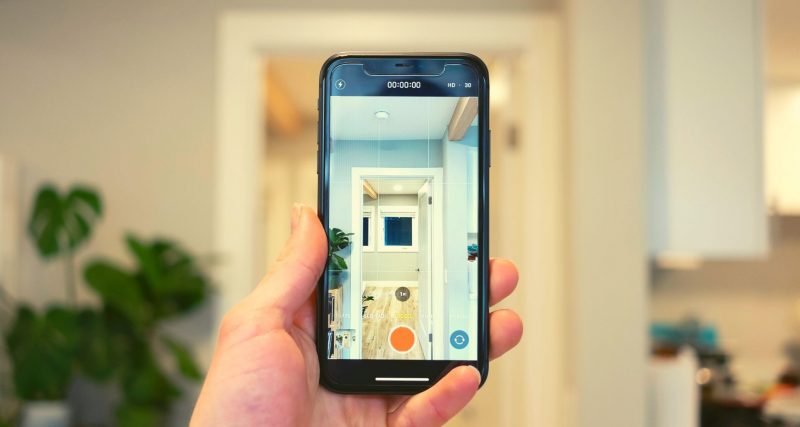True, this pandemic has made our lives difficult. It has forced us to stay cooped up in our homes for too long. It has impacted our social lives, professional lives, and practically everything. Still, it has brought one positive thing. Admittedly, that thing was already coming, and some developments had been made. But, the pandemic has accelerated it and showed us what we could do once push comes to shove. And that is the possibility of buying a home remotely without ever stepping foot in it. The technology has also enabled us to purchase a home remotely without regret. So, if you are about to start long-distance house hunting, you’ve got nothing to worry about. Armed with some tips and, ironically, somewhat twisted help from the pandemic, you will have a new home “under your arm” in no time.
Don’t even consider buying a house long-distance without a real estate agent.
While you can do a preliminary search, see what’s out there, and get a feel of the market, long-distance house hunting is not something you should do alone. Finding an excellent real estate agent experienced with this type of purchase is critical.
Your agent should have exceptional knowledge of the city you want to buy a home in and its housing market. Only an agent with such knowledge can tell you all you need to know about the city and help you find the place that suits your needs and lifestyle. Moreover, a good agent will have good contacts. They will recommend a lawyer, mortgage broker, moving company, house inspector, and any other professional you may need. Finally, ensure you find an agent who will be easy to reach. It means they will answer your calls whenever necessary, and they will accommodate your preferred method of communication – email, chats, phone calls, video calls, etc.
ADVERTISEMENT
Think carefully about what you want from a house.
To make your agent’s life easier and your long-distance house hunting productive, you must sit down and think about what kind of house you want. For example, think of the following:
- The number of bedrooms
- The number of bathrooms
- The floor plan (e.g., open space or traditional floor plan)
- The size of the yard
- Any additional features
You also need to consider what type of neighborhood you want to live in. It will depend on your family situation and lifestyle. For instance, you will want to live in a good school district if you have kids. You will also enjoy a family-friendly neighborhood with many parks and playgrounds. Safety will be a concern, as well. Think about the amenities that you deem necessary to be in the vicinity of your future home.
While making a list, make sure you organize your requirements into categories. It would be best to know what the must-haves would be and what features would be nice to have but are not essential. Also, think about what potential deal-breakers will be.
ADVERTISEMENT
All of this information will be very helpful. Your agent will know which homes to disregard immediately.
Set the budget and determine the wiggle room.
While doing your preliminary search, you probably got a rough idea of the price ranges in different neighborhoods in the city. Another thing you should investigate is the general cost of living compared to your current city. Some typical expenses you should consider are:
- Gas
- Utilities
- Public transport
- Groceries
- Dining out, etc.
That will help you determine how much house you can afford and set a realistic budget. Also, your realtor will be beneficial here, and they will guide you toward the neighborhoods where home values are within your price range.
ADVERTISEMENT
When purchasing a house, don’t forget that the price of a home is not the only expense you will face. There are also closing costs, house inspection, moving costs, etc.
Organize virtual tours
Photos are fine, but they hardly give you a complete picture, and they can easily hide flaws and embellish some areas. So, when a home catches your eye, organize a virtual tour. If the seller hasn’t created one, your agent can video call you and walk you through the place. While that happens, you can ask to pay more attention to some areas and ask as many questions as you need.
Plan a visit to the new city.
If possible, visiting the city you plan to relocate to would be best. It will give you an idea of the vibe there, and you will familiarize yourself with the neighborhoods. At the same time, you can schedule a few house viewings. While virtual tours and video calls do wonders, nothing beats first-hand experience. So, if you have the opportunity, you should see the place you plan to buy.
Organize a home inspection.
A professional home inspector will quickly notice any damage, faults, and decay in the house. Even if you have visited the place, the chances are you have missed some issues.
A home inspection is essential, especially when buying a previously-owned house and doing so remotely. Sellers can use various methods to conceal some considerable problems, and those can escape your untrained eye. An inspection will ensure you don’t make a costly mistake.
Hire reliable movers
Remember that you also have to organize the move to your new home. Since you will be moving long-distance, attempting a DIY move is ill-advised. You need to hire movers to help you quickly relocate to a new city. Your agent can probably recommend a reliable crew. Still, it would help if you also searched for the most affordable option. Contact several companies with good reviews and ask for quotes. Compare the offers and pick the crew with the best value for money.
Long-distance house hunting made easy.
Looking for the right home is never a walk in the park, so it’s understandable if the prospect of doing so remotely scares you. But long-distance house hunting will be much easier if you find an agent you can trust and give them your list of requirements and deal-breakers.








